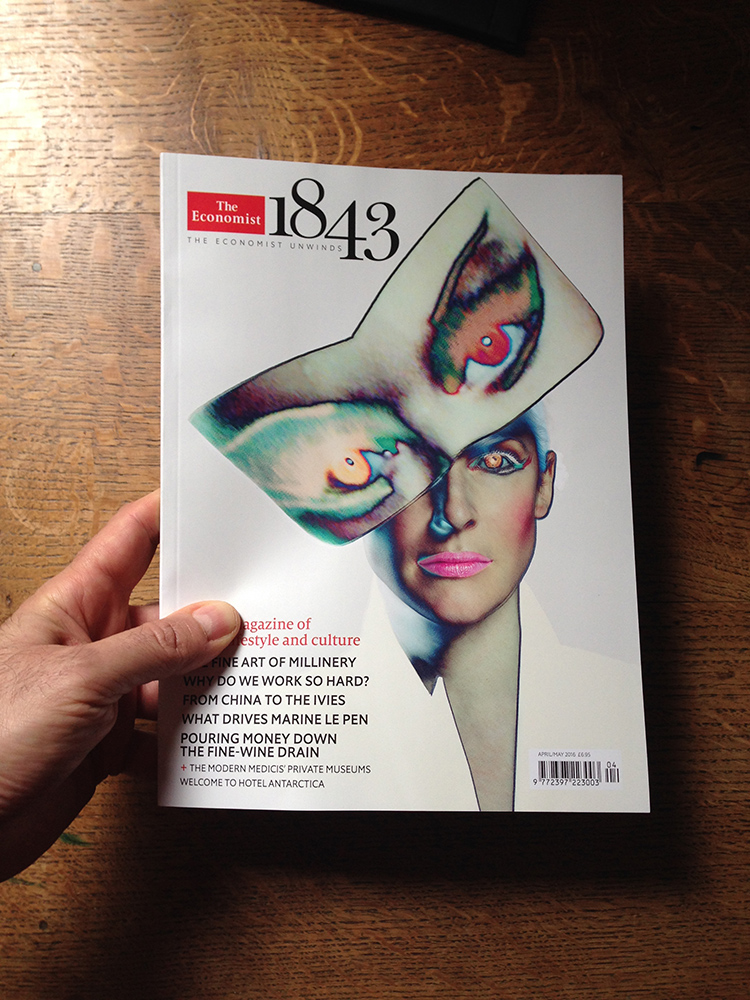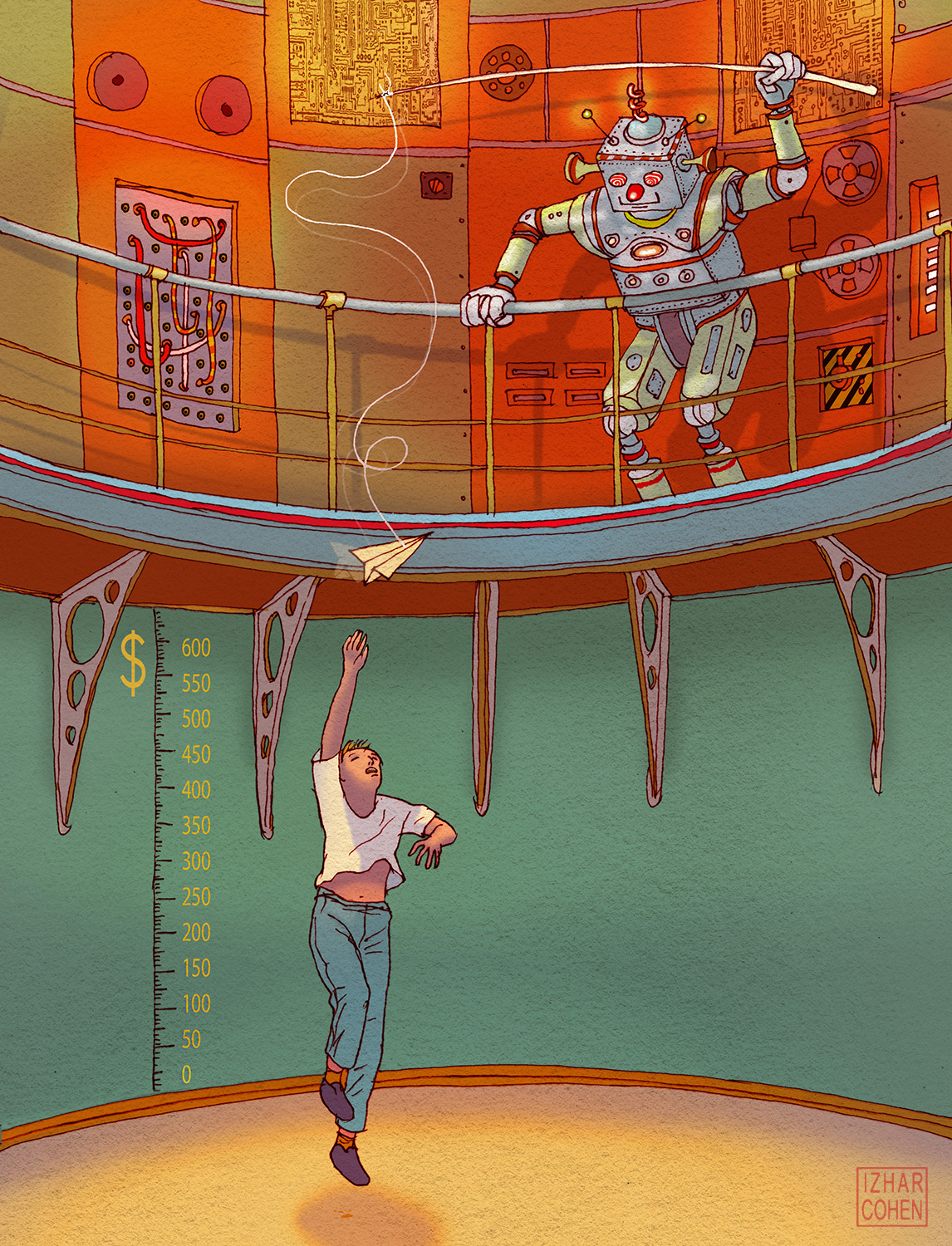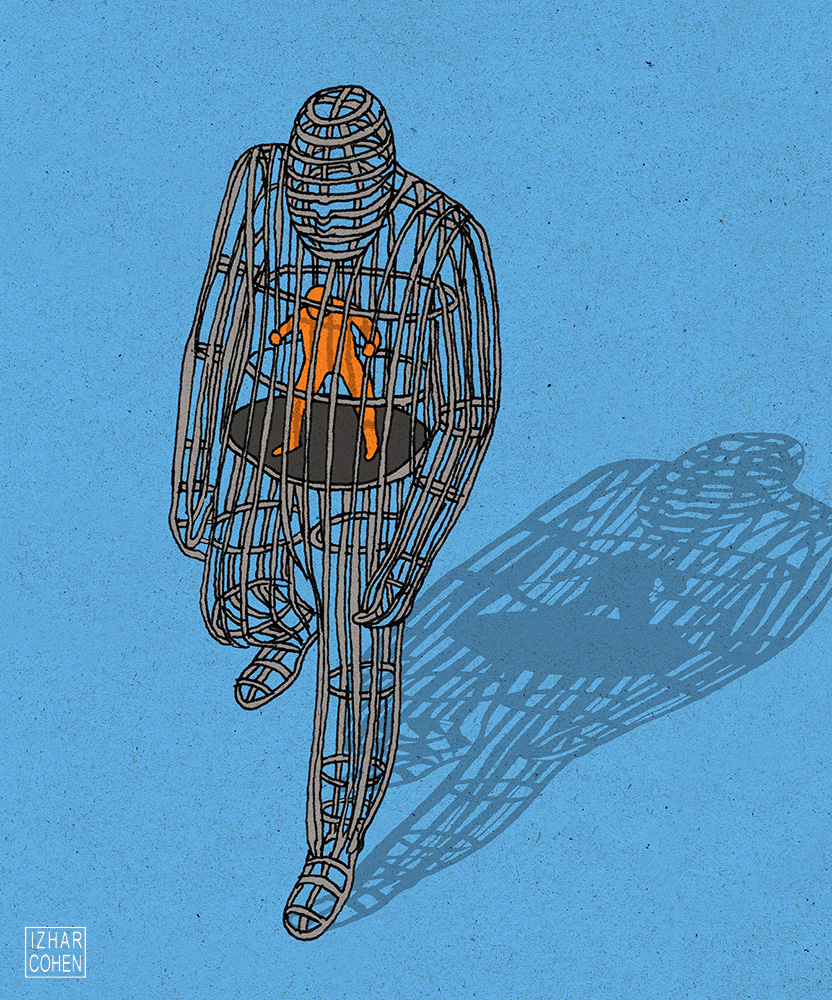
To be perfectly Honest 14X14.5cm, Watercolours and pencil

To be perfectly Honest 14X14.5cm, Watercolours and pencil

Nothing like print
The postman just rang the doorbell, I was downstairs by the time his finger was about to press the button for the second time. Inside the envelope I found the copy of the first Intelligent life 1843 magazine. Graham Black, the designer, gave a wonderful form to a brilliant collection of delicious candies for the mind. There’s nothing like print!
Intelligent Life, The Economist’s culture and lifestyle magazine that publishes six times a year, was relaunched this week. I am proud in being amongst the contributors of it maiden issue.
The magazine is named for the year The Economist was founded
The title plans to broaden and enhance its coverage with a fashion shoot in every issue; profiles of headline-makers from The Economist, and in-depth travel narratives. It will come out six times a year.
For the full article in its online version, click here

Beware the cookies!
Those of us who are accustomed with online shopping for airline tickets, Uber car services and others, must have gone through the experience of a ‘reactive interface’ while in the process of picking up the right flight, time and seat.
This shopping arena is inhabited by extremely ‘awake’ algorithms, which through the agency of cookies nested in our web browsers, allow the companies a price hiking which mirror the desirability of the object they’re selling. Nasty.
Published in Calcalist Magazine.

The science we deserve
By Michael Shermer on March 1, 2016
In view of Bernie Sanders’s Michigan upset, I find it most appropriate to post Michael Shermer’s column in this month’s Scientific American, Dealing with the scientific integrity of social science.
For the full article

The science we deserve

The peril of being a fairy tale hero

Women earn less
As today is the day, I was invited to express with my own metaphoric tools, the condition of the woman in today’s workplace. I was asked, more particularly by the editor to emphesise the discrepancy in salaries between women and men. My reply to him, above.

Hidden truths behind China’s smokescreen
The pictures from Beijing tell their own story: pollution there is catastrophic. Bad news for residents, and awkward for me too. Just over a decade ago, I wrote a book, The Undercover Economist, which among many other things cheerfully asserted that particulate air pollution in urban China was sharply falling as the country grew richer. It’s a claim I believed at the time (based on well-regarded research in the 2002 Journal of Economic Perspectives) but with each new report of smog over China, I felt a nagging sense that I had led readers astray. I figured it was time to do some more research and to set the record straight.
There is a broader question here. When countries become richer, do they pollute their environment more or less? For a while it seemed obvious that pollution and riches went hand in hand: industrialised nations spewed out more of everything.
But then the leading countries began to crack down on pollution. London no longer suffers from smog. The European Union reduced sulphur dioxide emissions by more than 80 per cent between 1990 and 2011. At the same time, the United States has reduced atmospheric lead by 98 per cent.
In the early 1990s, Princeton economists Gene Grossman and Alan Krueger coined the phrase “environmental Kuznets curve” to stand for the idea that as countries become richer, their emissions first rise but then fall, as richer citizens demand cleaner air from the governments they elect and the companies from whom they buy. There’s some evidence that this is true but it’s hard to interpret that evidence. An optimistic view is that countries reduce pollution with or without economic growth because they can use clean technologies developed elsewhere. If true, China may be able to clean up its air faster than we’d expect.
A grimmer possibility is that the richer countries aren’t really reducing pollution — they are exporting it, by banning dirty factories at home while happily buying from dirty factories abroad. On this view, China is unlikely to be able to clean its air any time soon.
How serious a problem is offshoring pollution? It’s not trivial. In 2007, Joseph Aldy of Harvard’s Kennedy School published research showing clear evidence of this pollution-export effect within the US. Richer states seemed to be emitting less carbon dioxide per person as their economies grew. Alas, Aldy concluded that the effect could be explained entirely by the rich having bought their electricity from poorer states rather than generating it at home. A more recent study (Peters, Minx, Weber and Edenhofer 2011) estimated that by 2008, developed countries were net importers from developing countries of goods whose production represented about 1.6 billion tonnes of carbon dioxide emissions, roughly 5 per cent of the global emissions total. No prizes for guessing that much of this energy-intensive manufacturing is taking place in China, alongside the production of steel, cement and coal-fired electricity for domestic use.
The dreadful air quality in Beijing, then, is no mystery. First, China is not yet rich, so it may be on the wrong side of the environmental Kuznets curve anyway, the side where pollution has not yet begun to fall. Second, China is not a democracy, and that will partially dampen the power of its citizens to demand cleaner air. Third, China is a major exporter of manufactured goods.
But as I stood ready to pen my correction, I realised something: I didn’t actually have a time series for air pollution in urban China. I could see that things were bad but not what the trend was.
“The challenge with particulates is that we keep changing what we want to measure and regulate,” Aldy told me. Researchers now track PM2.5, very fine particles thought to be particularly hazardous to health; but, in 1985, when my original data series began, nobody was collecting PM2.5 data.
So how much worse have things got in China? I called Jostein Nygard of the World Bank, who has been working on Chinese air pollution issues for more than two decades, and I was surprised at his response: in many ways, China’s urban air quality has improved.
Sulphur dioxide is down and coarser particulate matter is also down since good records began in 2000 — a fact that is explained by Chinese efforts to install sulphur scrubbers and to move large pollution sources away from the cities. “You could see the air quality improving through the 1980s and 1990s and to the 2000s,” says Nygard. PM2.5 is very bad, he says — but not necessarily worse than 10 years ago, and serious efforts are now under way to track it and reduce it.
To my surprise, not quite a correction at all, then. But if local air pollution in China is actually on an improving track, how come we see so many stories about pollution in China? One reason, of course, is that the situation remains serious. Another is that the Chinese government itself seems to be using smog alerts as a way to send a message to local power brokers that clean air is a priority. But there is also the question of what counts as news: sudden outbreaks of smog are newsworthy. Slow, steady progress is not.
Written for and first published at ft.com.

Identity crisis
Here is my humble contribution for the mighty struggle for some sanity in these horrific republican party presidential primaries.
Good luck to us all.

Self incarceration
We all seem to recognize our limits and limitations in the outside world, yet we find it more difficult to observe our own limitations and the hurdles we provide ourselves on our way to fulfill our own potential.
These two images accompanied Shlomo Artzis weekly column, writing about Ehud Olmert. Former Israeli prime minister and a convicted criminal who started his jail term last week.

Self incarceration